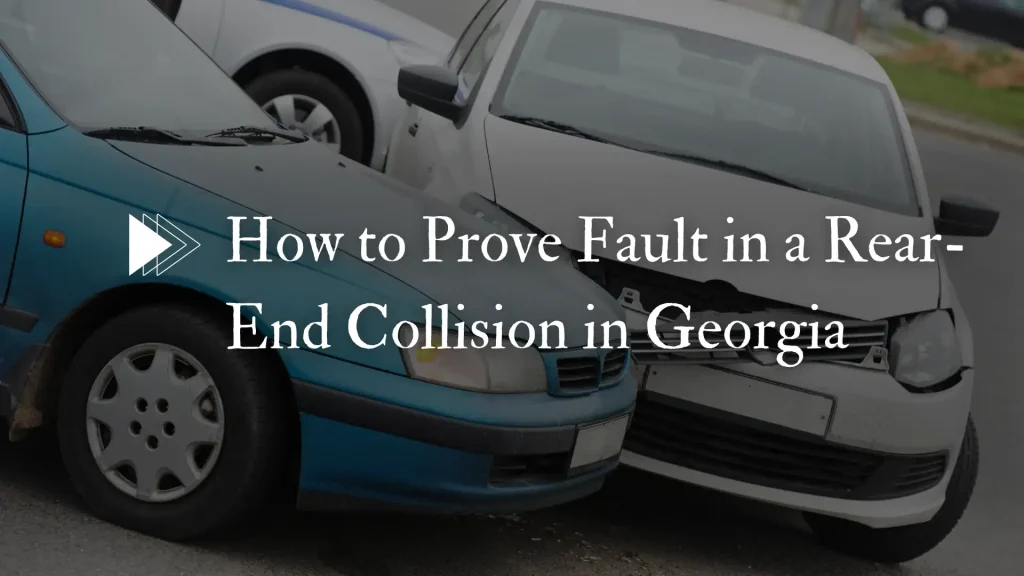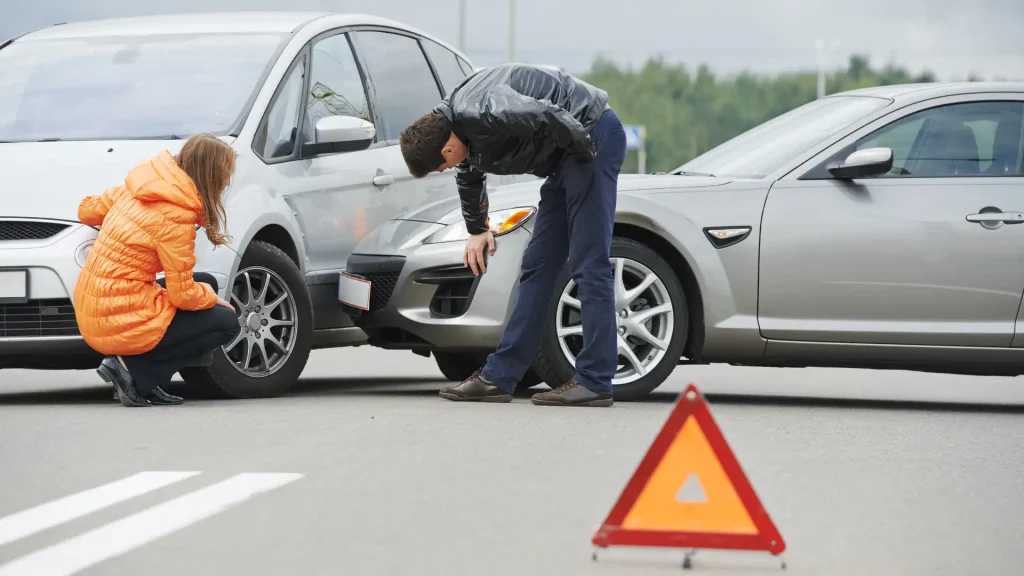
Rear-end crashes happen every day across Georgia. Some are minor fender benders. Others lead to serious injuries that change people’s lives. No matter how severe the crash is, one thing remains the same: proving who caused it matters. That’s where understanding rear-end collision fault becomes crucial to determining liability and securing compensation.
If you’ve been hit from behind, don’t assume it’s a simple process. The rear driver is often blamed, but that’s not always how things play out under Georgia law. You’ll need strong evidence, a clear story, and a lawyer who can deal with insurance companies and courts to get the necessary compensation.
Is the Rear Driver Always at Fault in a Rear-End Collision?
It’s easy to think the driver in the back is always to blame. And most of the time, that’s true. Drivers are supposed to leave enough space so they can stop safely. If someone hits the back of your car, it usually means they were too close or weren’t paying attention. However, some situations aren’t so simple.
Exceptions That Could Shift Fault
Let’s say a car makes a sudden stop for no apparent reason. Or maybe their brake lights don’t work. In those cases, the front driver could share some blame. The same goes for someone who cuts you off and slams on the brakes. Some even use brake checking to intimidate tailgaters, which can lead to a crash. These actions could shift the blame away from the rear driver.
Georgia’s Comparative Negligence Rule
Georgia follows a rule called modified comparative negligence. That means each driver can be assigned a percentage of fault. You can still recover money if you are 49 percent or less at fault. However, you can’t collect damages if you’re 51 percent or more at fault. This rule applies in every car accident case, including rear-end collisions.
How Fault Is Determined in Rear-End Accidents
In Georgia, several factors may play a role in determining who is at fault for a rear-end accident.
Police Reports and Citations
After a crash, the officer writes a report and may issue traffic tickets. These reports often say who the officer believes caused the accident. If one driver was tailgating or ran a red light, that usually gets noted. While not final, the report plays a significant role in the claims process.
Insurance and the 51 Percent Rule
Insurance companies also use Georgia’s 51 percent rule to decide who pays. They’ll look at all the evidence and assign fault. If you were found to be 30 percent responsible and had $100,000 in damages, your compensation would drop to $70,000. If the case ends in court, a judge or jury looks at the whole picture, including photos, reports, witness statements, and more. This is where strong evidence matters.
Common Causes of Rear-End Collisions
Several factors often play a role in rear-end accidents. These include:
- Distracted Driving – This is one of the biggest causes of rear-end crashes. A driver glances at a phone, adjusts the radio, or talks to passengers, and in a split second, they’ve crashed into someone.
- Following Too Closely – Also known as tailgating, this occurs when a driver fails to maintain a safe distance. If the front car slows down or stops, the rear driver can’t react in time.
- Sudden Stops or Lane Changes – A car that stops suddenly or changes lanes without warning creates a recipe for disaster. Drivers behind them may not have enough time to respond.
- Road Conditions or Mechanical Issues – Rain, fog, or malfunctioning brake lights can all contribute to crashes. Sometimes, the problem isn’t the driver. It’s the vehicle or the environment.
Key Evidence Used to Prove Fault
Several types of evidence will play a critical role in proving your case:
- Dash Cam and Traffic Camera Footage – Dash cam evidence or traffic camera footage can provide clear visual evidence of what happened. Video can clear up confusion and catch things people miss.
- Eyewitness Statements – People nearby may have seen the crash. Their statements help show who did what and when.
- Vehicle Damage and Skid Marks – Where and how the cars were damaged can tell a story. Skid marks show if someone tried to brake. This physical evidence can match up with witness accounts or video.
- Cell Phone and EDR Records – Cell phone records may prove distracted driving. Cars now have event data recorders (EDRs), like a black box, that track speed, braking, and impact. This data can be key in proving fault.
What If You Were Partially at Fault?
Even if you did something wrong, you might still have a case. Georgia’s comparative negligence law allows partial recovery. For example, if you were 20 percent at fault, you’d still recover 80 percent of your damages.
How It Affects Your Claim
Let’s say a driver was brake-checking, but you were also speeding. You may both share the blame. Your final payout depends on how much of the accident each side is responsible for.
Why Legal Help Matters
Insurance companies love to shift blame. They may try to pin more than 51 percent on you so they don’t have to pay. A lawyer can push back, gather evidence, and keep your story straight.
How to Protect Yourself After a Rear-End Collision

You should do a few things after an accident to provide yourself with the best chance of getting justice. These steps can help you gather evidence and protect your right to compensation.
At the Scene
First, check for injuries. Then call 911. While you wait for the police, take photos of the damage, road conditions, traffic lights, and anything else that might matter. Get names and numbers from witnesses. Rear-end crashes happen every day across Georgia. Some are minor fender benders. Others l
Seek Medical Attention
Even if you feel fine, get checked out. Some injuries, like whiplash, show up later. A medical report helps prove your personal injury claim later. Following your doctor’s advice is essential not just for your health, but for your case.
Document Everything
Keep receipts for repairs, medical bills, and even rental cars. Write down how the injury affects your daily life. The more detail you have, the stronger your case. Save all communication with the insurance company so nothing gets lost or misunderstood.
Contact Our Georgia Car Accident Lawyer Today
Proving fault in a rear-end crash isn’t always simple. This is especially true when injuries, blame, and insurance companies get involved. But you don’t have to go through this alone.
If you were hurt in a rear-end accident, contact our Georgia car accident attorney at Chris Hudson Law Group by calling (706) 863-6600. Our team will review your case, gather the evidence, and fight for the compensation you deserve. Don’t wait to protect your rights. Reach out for a free consultation and let us help you move forward.
